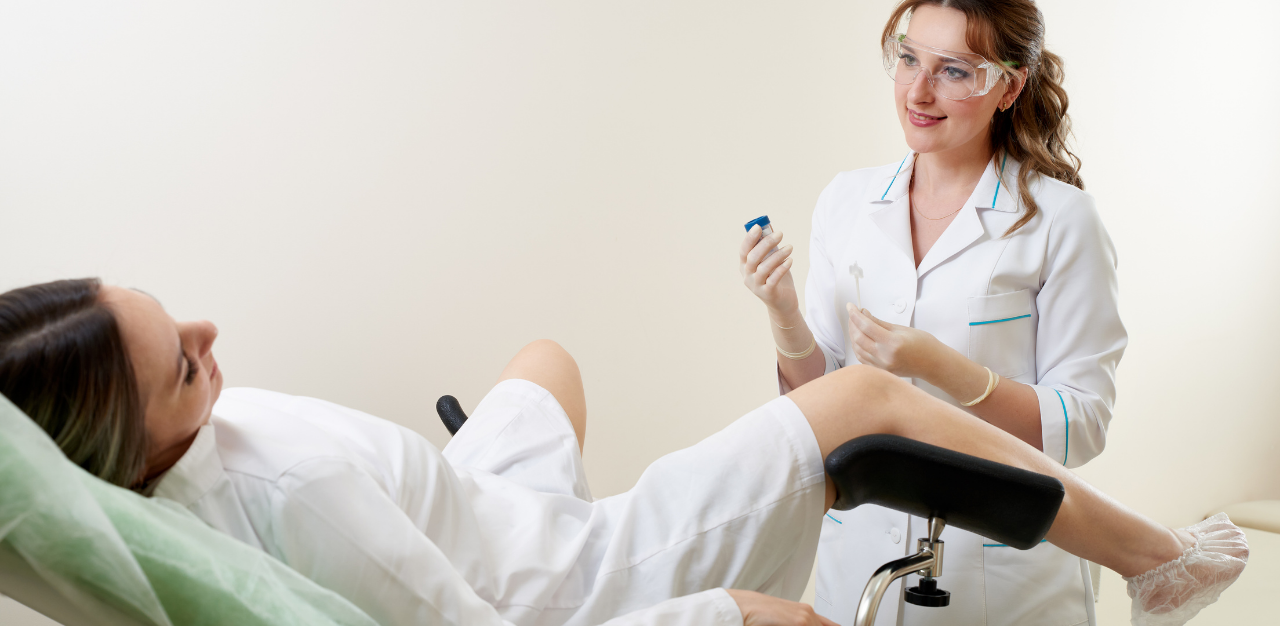Worldwide, cervical cancer is the second most common cancer in women with half a million new cases diagnosed each year. And according to the Singapore Cancer Society, it is the 10th most common women’s cancer in Singapore and a major cause of gynaecological deaths. Yet, it is preventable through regular Papanicolaou (Pap) smear screening, and curable if detected early. While its prevalence has dropped over the years, do women do enough to care for their sexual and reproductive health? TheHomeGround Asia finds out.
When asked why it was important to visit a gynaecologist for regular screenings, Hong Li Xuan, 23, answers, “To identify problems, if any, early.” Yet, despite being aware, she has not done so.
“Where do I start?” she questions. “Do I just go to the hospital?”
Carolyn Tan, 37, expresses similar confusion about the process: “I was not sure which gynae was good and which gynae does what services. Most gynaes are just packed [with pregnant women].”
Prior to getting pregnant, Ms Tan had not visited a gynaecologist at all, and had only gotten her first Pap smear after childbirth.
Their situations are not unique. According to the Cervical Cancer Epidemiology and Screening Behaviour in Singapore by the Ministry of Health (MOH), Pap smear screening rates fell between 2007 and 2013.
The MOH report had been based on the National Health Surveillance Surveys from 2001, 2007 and 2013, as well as the National Health Surveys from 2004 and 2010. In each of these reports over 10,000 households were surveyed.
In recent years, the National Population Health Survey found a marginal increase in cervical cancer screening rates from 46.3 per cent in 2017 to 48.2 per cent in 2019. But, screening rates have fallen by more than half for women aged 25 to 29 in the long-term, from 49.5 per cent in 2007 to 21 per cent in 2019.
Why are Pap smears important?
According to HealthHub, Pap smears are pivotal in the early detection and prevention of cervical cancer.
Cervical cancer is caused by a prolonged infection by the sexually transmitted virus called the Human Papilloma Virus (HPV). Dr Christopher Ng, a practising gynaecologist from GynaeMD Women’s and Rejuvenation Clinic, explains that while HPV infections may not always result in cancer, repeated infection or prolonged infection can lead to a pre-cancer stage known as Cervical Intraepithelial Neoplasia (CIN). Left untreated, this can eventually lead to cancer.
Given that cervical cancer is slow-progressing and can take up to 15 years to develop, regular screening serves to catch HPV infections before they develop into cancer.
MOH guidelines recommend that all women who have had sexual intercourse undergo cervical cancer screening from the age of 25 years old. Between 25 and 29, women are advised to get Pap smears every three years. From 30 onwards, women should go for a HPV DNA test, a more sensitive screening tool, once every five years.
Screening should continue in regular intervals until the age of 69. After which, women can be discharged from screening if the smear taken at 69 years old, and the two previous smears taken in the past decade, are consecutively negative.

While there are some who are afraid that Pap smears may be painful, Dr Ng assures that “if done properly, it shouldn’t be.” To reduce anxiety, he often chats with his patients while conducting the test, and they do not even realise that the test is done until it is over.
Prevention is better than cure: HPV vaccines
Besides regular screening, women are also advised to go for the HPV vaccine, which immunises them against specific types of HPV infection that may lead to cervical cancer. The HPV vaccine is recommended for females aged between nine and 26 years old. Women above 26 who wish to receive the vaccination are advised to speak to their doctor to find out if they are suitable.
For a more comprehensive coverage of the vaccination, MOH announced in 2019 that the HPV vaccination will become part of Singapore’s national school-based health programme, on a fully subsidised opt-in scheme.
While the HPV vaccine provides an additional layer of protection against cervical cancer, it does not immunise against all types of HPV infection and should not replace regular screenings.
Why the hesitance?
While testing and vaccination are important, Dr Ng suggests that inertia stops more women from not getting routine checks.
“They don’t seem to go routinely,” he says. “Unless maybe they had a Pap smear [that was] abnormal, and they come to get treated… [but] subsequently, if they get normal Pap smears for the next few years, then there’s a high chance that women will drop out [and not] come back for the follow-up.”

He draws a parallel to people’s attitudes toward the ongoing pandemic. Many were initially hesitant to download the TraceTogether application even though it would have allowed the nation to move into Phase Three, where regulations have since been relaxed. He also highlights how some individuals are still holding off being vaccinated against COVID-19 even if they are eligible, despite the potential upsides of being able to travel sooner.
Dr Ng questions, “COVID-19 affects your life, everybody has to wear mask [and] cannot travel, and there’s [still] some resistance from people wanting to get vaccinated, then can you imagine, pre-COVID, asking people to come and see us to do your Pap smear, do your vaccine? Even more inertia, isn’t it?”
He adds, “And that one [regular screening when you are well] does not even affect your lifestyle. But the consequences are worse…A lot of people with COVID-19 survive. Not the case for these cancers.”
A report in 2018 by The Catalan Institute of Oncology and the International Agency for Research on Cancer estimates that 429 women are diagnosed with cervical cancer in Singapore every year, and 208 die from the disease.
The disease is especially fatal in its later stages, which is usually when symptoms start appearing, according to the Singapore Cancer Society. While the five-year outlook on survival is high at 80 to 90 per cent in Stage 1, it can drop to a mere 10 to 20 per cent in Stage 4.
But some women, like Ms Tan, never saw the need to visit the gynaecologist for a check-up prior to getting pregnant.
She says, “I think it’s just not the norm among my peers to visit the gynaecologist for no reason. Most of my friends either visit due to painful cramps or pregnancy.”
This may have to do with a lack of education, as cervical cancer, Pap smears, and HPV vaccines are not included in schools’ sexual education syllabus.
Heng Si Yun, 24, had only heard about the HPV vaccine recently from a friend who is a nurse. Likewise, she had only encountered Pap smears when it was brought up by a doctor during an unrelated visit to the polyclinic. Ms Hong, too, had only heard about Pap smears and HPV vaccines from her mother.
Progress has been made, but more can still be done

Generally, there has been a fall in the prevalence of cervical cancer. From being the fourth most common cancer in the 1970s, it is now ranked 10th. But, according to the Cervical Cancer Epidemiology and Screening Behaviour in Singapore by MOH, there was a slight increase in cases recorded from 2011 to 2015.
The report also mentions that despite knowledge of Pap smears spiking between 2001 and 2013, from 69.3 per cent to over 90 per cent, many women still cite reasons such as them being “not at risk” or “healthy” for not going for Pap smears.
MOH explains that these findings mean many still lack a proper understanding of cervical cancer and its risk factors, which can be dangerous. In the pre-cancerous stage of CIN, an individual will not experience any symptoms or see any signs. It is only detectable through routine Pap smears, without which, it may go undetected and untreated until cervical cancer develops.
Advice from a gynaecologist
To protect yourself from the potentially fatal consequences of an HPV infection and cervical cancer, Dr Ng has one piece of advice: “See your gynaecologist when you are supposed to for your routine screenings… Even if you get a normal result, and your gynaecologist recommends when is your next screening test, you should follow that and don’t get complacent.
He adds: “If every time you do the test and the result comes back normal, I would look at that as a very good reassurance and everything is healthy, rather than ‘Oh, every time I come, it’s always normal, so maybe I don’t come anymore’ because that’s when things happen.”
For more information on cervical cancer, screening, and the HPV vaccine, refer to this brochure by the Health Promotion Board.
Join the conversations on THG’s Facebook and Instagram, and get the latest updates via Telegram.












